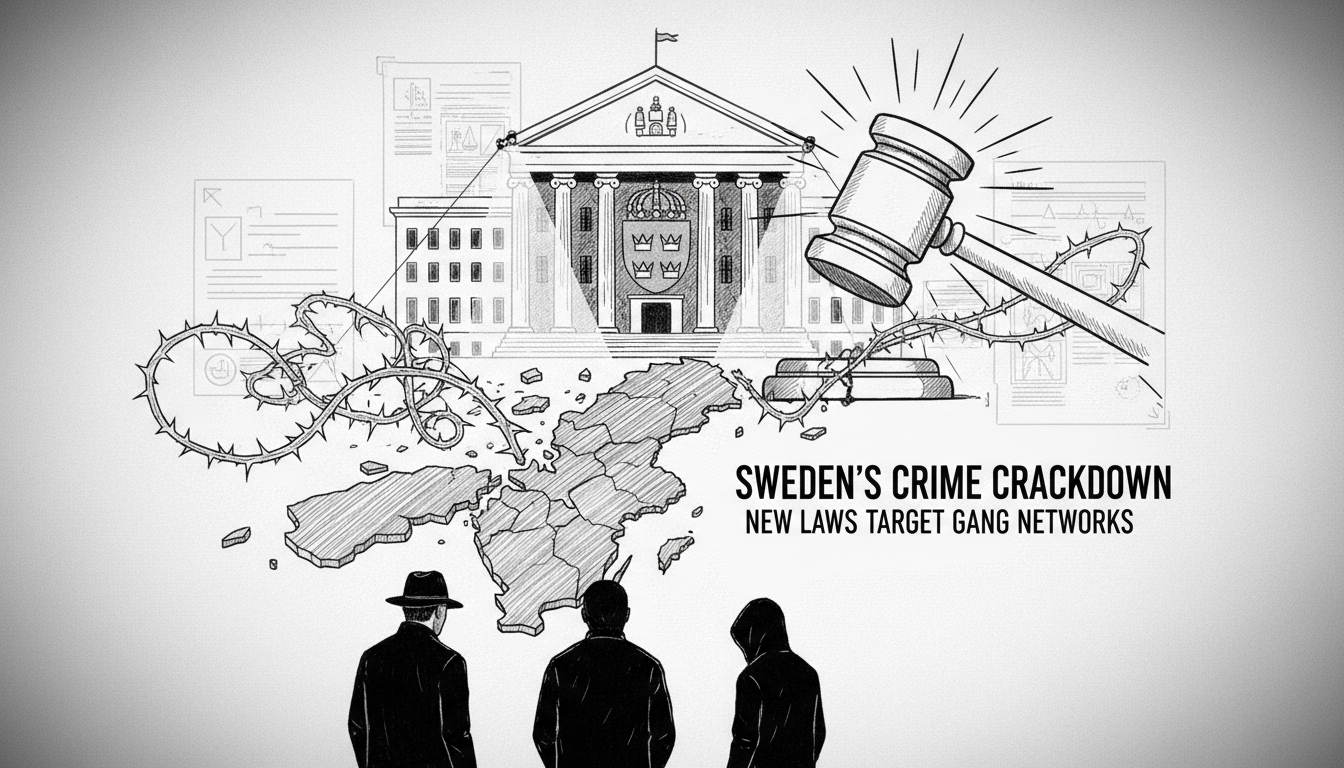The Swedish government has introduced sweeping legal reforms designed to combat gang crime. Justice Minister Gunnar Strömmer presented the measures that expand criminal liability for preparatory acts. The legislation specifically targets gang leadership and recruitment of minors.
Under current law, digital advertisements recruiting youth into criminal activity only become punishable when money changes hands. The new legislation makes the mere promise of payment a criminal offense. This change aims to disrupt recruitment pipelines before financial transactions occur.
Police will gain expanded authority to conduct undercover operations in digital chats. Officers can pose as children to identify and prosecute gang members who recruit minors online. The justice minister described this as modernizing legislation to reflect current realities.
The proposed laws also address weapon possession cases. This follows a high-profile Supreme Court ruling known as the 'weapon replica case' where suspects were acquitted because seized weapons turned out to be replicas. The government now creates specific regulations to prevent similar outcomes.
Authorities will also be able to prosecute criminals who use encrypted phones during crime planning phases. Previously, prosecutors needed to demonstrate these devices were used during actual crime commission.
The legislation represents a significant shift in Sweden's approach to organized crime. For years, authorities have struggled to prosecute gang leaders who orchestrate crimes while maintaining distance from actual execution. These measures attempt to close that gap by targeting earlier stages of criminal activity.
Sweden has seen rising gang violence in recent years, particularly in major urban areas. The government faces pressure to demonstrate effective responses while balancing civil liberties concerns. Previous proposals drew substantial criticism from legal professionals and judicial authorities.
Justice Minister Strömmer acknowledged the government incorporated feedback from the Prosecution Authority, several courts, and the Swedish Bar Association. The revised legislation reflects some compromises while maintaining its core objectives.
The expanded attempt liability provisions are scheduled to take effect April 1, 2026. Other legal changes would become active July 1 of the same year. This staggered implementation allows law enforcement and judicial systems time to adapt procedures and training.
These measures represent the latest in a series of government actions addressing organized crime. They reflect growing concern about gang recruitment of teenagers and the sophistication of criminal networks using digital communication tools. The success of these legal changes will depend on practical implementation and judicial interpretation.
International observers closely watch Sweden's approach as many nations face similar challenges with organized crime adapting to digital environments. The balance between investigative powers and civil liberties will likely continue evolving as these measures take effect.

